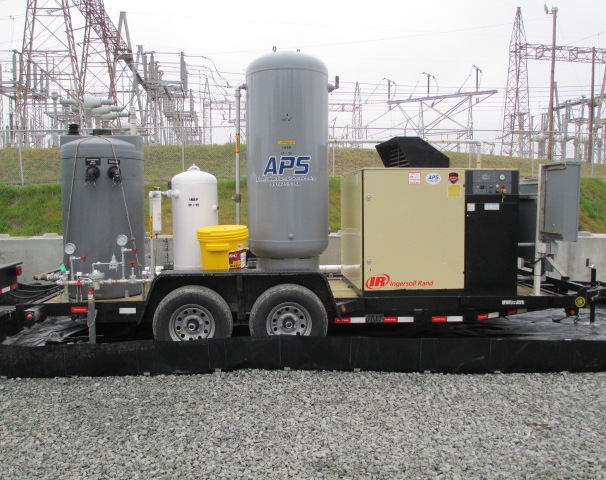Features of Hydraulic Oil
Hydraulic oil is the non-compressible fluid that transfers power in hydraulic machinery and equipment. It delivers power, lubricates components, dissipates heat, and carries away contaminants.
Bulldozers, tractors, lifts, and aircraft flight control systems use hydraulic systems to produce the force needed for movement. These systems require hydraulic oils with specific characteristics to work well.
Contents
Temperature Stability
Hydraulic oil must retain its properties within a particular temperature range. Otherwise, it may wax or freeze under cold conditions, lose viscosity, and leak under hot conditions.
Poor thermal stability can lead to performance issues such as servo failure, cavitation, and metal fractures. It can also cause system fluid contamination with sludge that can clog filters, reduce flow and boost downtime.
Hydraulic oils formulated for thermal stability have low compressibility and outstanding shear resistance providing exceptional equipment protection. They can help extend the life of hydraulic components and minimize maintenance and downtime. These products can function effectively in systems containing small quantities of water while separating large amounts. This is due to their controlled demulsibility.
Viscosity
Hydraulic oil Charlotte NC is unique because it is a lubricant and transfers power between system components. Hydraulic oil must work effectively in a wide range of temperatures.
Viscosity is a physical property that measures resistance to flow. Water has low viscosity, while syrup and tar have high viscosity.
Hydraulic oil needs to be dense enough to form a lubricating film over internal mechanical parts, but it shouldn’t be too thick that it won’t flow at all. This is why manufacturers blend their oils to have a high viscosity index. They can also use additives to improve the viscosity index even further.
Compressibility
While it’s often assumed that hydraulic oils are incompressible, they’re not. Hydraulic fluids are somewhat compressible, but the amount of compression varies depending on the pressure, temperature, molecular structure, gas, and system design.
Air bubbles in hydraulic systems also influence the compressibility of the fluid. When the fluid is under pressure, the air dissolves, reducing its bulk modulus and increasing its compressibility.
This can cause many problems, including power loss, efficiency loss, cavitation, and metal fractures. Selecting hydraulic oil with low compressibility is essential to avoid these issues. High-quality hydraulic oil has been specially formulated to meet these demands.
Wear Resistance
Hydraulic oil must be able to decrease friction between rubbing surfaces to keep machines running smoothly. Anti-wear hydraulic oils are designed with additives that increase the strength of the oil film to resist surface contact, extending equipment life.
A high viscosity index means hydraulic oil stays fluid over a wide temperature range. This maximizes energy efficiency and optimizes servo valve operation.
Vegetable hydraulic oils are a popular option for customers seeking environmentally friendly lubricants. These oils have excellent oxidation and corrosion resistance and anti-wear and anti-foam properties. They also have reasonable foam control and thermal stability. They are suitable for use in both mobile and stationary equipment.
Oxidation Stability
Hydraulic oil must have good oxidation stability to prevent degradation and sludge formation, maintain viscosity over various temperatures, and protect equipment from corrosion and rust. It should also be able to dissipate heat efficiently and effectively.
The oxidation resistance of hydraulic oils can be assessed by measuring the allylic position equivalents (APE) and bis-allylic position equivalents (BAPE) index. The higher these values are, the more prone the oil is to oxidation.
Oxidation can rob hydraulic oil of its ability to perform, reducing system efficiency by 1% for every 10 degrees C above its ideal operating temperature. Hydraulic oil’s oxidation resistance can be improved by adding antioxidants.
Biodegradability
Biodegradable hydraulic fluids can lessen the impact in areas where environmental concern is essential, like farming, forestry, and shipping. These environmentally-friendly fluids are formulated with vegetable oils, including rapeseed oil, synthetic esters, and poly glycols. Millions of gallons of mineral-based hydraulic oil are spilled into the environment every year.
Fire-resistant hydraulic fluids are also available to prevent flameout. These lubricants are formulated with various additives to improve corrosion protection, reduce foaming and maintain high-performance operation at moderate temperatures.
Other specialized lubricants are developed to fulfill particular requirements. Aerospace-specific hydraulic fluids, for example, offer anti-oxidation properties to withstand extreme working conditions at high altitudes. They also have water-separating properties, known as demulsibility, to prevent water emulsion damage.

